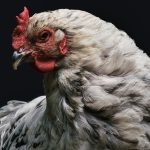Providing a comfortable and warm coop is crucial for the health and welfare of chickens, particularly during colder seasons. Proper insulation of the coop’s walls and ceiling, along with sealing any drafts or gaps, helps maintain a regulated temperature. Supplemental heat sources such as heat lamps or heated pads can further enhance the coop’s warmth.
Regular temperature monitoring is essential to ensure a suitable environment for the chickens. While maintaining warmth is important, adequate ventilation is equally critical. Proper air circulation prevents moisture buildup, which can lead to respiratory problems in chickens.
Installing vents or windows in the coop facilitates air movement. Regular cleaning of the coop is necessary to remove moisture and droppings, thereby improving air quality. By implementing effective insulation, heating, and ventilation strategies, chicken owners can create a cozy and healthy living environment for their flock throughout the year.
This balanced approach to coop management promotes the overall well-being of the chickens and supports their productivity.
Table of Contents
- 1 Ensuring Access to Fresh Water
- 2 Offering Nutritious and Varied Food
- 3 Providing Enrichment Activities
- 4 Protecting Against Predators
- 5 Maintaining Clean and Dry Bedding
- 6 Monitoring Health and Well-being
- 7 FAQs
- 7.1 What are some tips for keeping chickens happy in winter in Stardew Valley?
- 7.2 How can I ensure my chickens stay warm during the winter in Stardew Valley?
- 7.3 What kind of food should I give my chickens in winter in Stardew Valley?
- 7.4 How can I keep my chickens entertained during the winter in Stardew Valley?
- 7.5 Are there any health concerns I should be aware of for my chickens in winter in Stardew Valley?
Key Takeaways
- Providing a cozy and warm coop is essential for keeping chickens comfortable and healthy, especially during colder months.
- Ensuring access to fresh water is crucial for hydration and overall well-being of chickens.
- Offering nutritious and varied food is important for providing essential nutrients and keeping chickens healthy.
- Providing enrichment activities such as perches and toys can help prevent boredom and encourage natural behaviors in chickens.
- Protecting against predators is vital for keeping chickens safe and secure in their environment.
Ensuring Access to Fresh Water
Preventing Bacterial and Algal Growth
To ensure access to fresh water, it’s essential to regularly clean and refill water containers to prevent the buildup of bacteria and algae. Additionally, providing enough water containers for all of the chickens in the flock is vital, as overcrowding around water sources can lead to competition and potential dehydration.
Water Temperature Considerations
In addition to providing fresh water, it’s important to consider the temperature of the water during colder months. In freezing temperatures, water containers can quickly freeze over, leaving chickens without access to water.
Preventing Water Freezing
To prevent this, it’s essential to use heated water containers or regularly check and replace frozen water with fresh, unfrozen water. By ensuring access to fresh water at all times and considering the temperature of the water during colder months, you can help keep your chickens healthy and hydrated.
Offering Nutritious and Varied Food

Offering nutritious and varied food is essential for keeping chickens healthy and happy. A balanced diet is crucial for egg production, overall health, and well-being of the flock. Chickens require a diet that includes protein, carbohydrates, fats, vitamins, and minerals.
A good quality commercial feed formulated specifically for chickens is a great base for their diet. This feed should contain all the necessary nutrients for their growth and development. In addition to commercial feed, it’s important to offer a variety of treats and supplements to ensure a well-rounded diet.
This can include kitchen scraps such as fruits and vegetables, mealworms, and other protein-rich treats. It’s important to remember that treats should only make up a small portion of their diet and should not replace their main feed. Additionally, offering access to grit is important for chickens as it aids in digestion by helping them grind up their food in their gizzards.
It’s also important to consider the specific nutritional needs of different stages of life for chickens. Chicks require a higher protein content in their feed for growth, while laying hens require additional calcium for egg production. By offering nutritious and varied food, you can ensure that your chickens are getting all the necessary nutrients for their health and well-being.
Providing Enrichment Activities
Providing enrichment activities for chickens is essential for keeping them mentally stimulated and preventing boredom. Boredom can lead to negative behaviors such as feather pecking and aggression within the flock. There are many simple ways to provide enrichment for chickens, such as hanging treats or vegetables from strings for them to peck at, scattering scratch grains or mealworms in the coop or run for them to forage, or providing objects such as mirrors or perches for them to explore.
Another way to provide enrichment for chickens is by allowing them access to a larger outdoor area where they can roam and explore. This not only provides mental stimulation but also allows them to engage in natural behaviors such as dust bathing and scratching for insects. Additionally, providing access to a variety of perches and roosts within the coop can give chickens opportunities for exercise and exploration.
By providing enrichment activities for chickens, you can help prevent boredom and negative behaviors while promoting mental stimulation and overall well-being within the flock.
Protecting Against Predators
Protecting chickens against predators is essential for their safety and well-being. There are many potential predators that may pose a threat to chickens, including foxes, raccoons, hawks, and even domestic dogs or cats. To protect against predators, it’s important to secure the coop and run with sturdy fencing that is buried underground to prevent digging from predators.
Additionally, adding a cover or netting over the top of the run can help protect against aerial predators such as hawks. It’s also important to secure the coop itself with strong locks and latches to prevent predators from gaining access. Regularly inspecting the coop and run for any signs of damage or potential entry points can help prevent predator attacks.
Additionally, providing a secure nighttime lock-up for the chickens can help protect them from nocturnal predators such as raccoons. By taking measures to protect against predators, you can help ensure the safety and well-being of your chickens.
Maintaining Clean and Dry Bedding

Choosing the Right Bedding Material
There are many different types of bedding that can be used in a chicken coop, including straw, wood shavings, or shredded paper. It’s important to choose a bedding material that is absorbent and easy to clean out regularly. Additionally, providing nesting boxes with clean bedding can help encourage egg-laying in a clean and comfortable environment.
Preventing Damp Bedding
In addition to regular cleaning, it’s important to monitor the moisture levels in the coop to prevent damp bedding. Damp bedding can lead to mold growth and respiratory issues for the chickens.
Benefits of Clean and Dry Bedding
By maintaining clean and dry bedding, you can help ensure a healthy and comfortable environment for your chickens. This can lead to a reduction in health issues and an increase in egg production.
Monitoring Health and Well-being
Monitoring the health and well-being of your chickens is essential for catching any potential issues early on and providing proper care. It’s important to regularly observe your chickens for any signs of illness or injury, such as changes in behavior, lethargy, abnormal droppings, or changes in appetite. Additionally, regularly checking for parasites such as mites or lice can help prevent infestations that can lead to discomfort and health issues for the chickens.
In addition to regular observation, it’s important to provide regular health checks for your chickens, including regular deworming and vaccinations as recommended by a veterinarian. It’s also important to provide proper nutrition and access to fresh water at all times to support their overall health. By monitoring the health and well-being of your chickens regularly, you can help catch any potential issues early on and provide proper care to keep them healthy and happy.
If you’re looking for more tips on keeping your chickens happy in the winter in Stardew Valley, you might want to check out this article on converting a shed into a chicken coop. It offers valuable insights on creating a comfortable and safe environment for your chickens during the colder months.
FAQs
What are some tips for keeping chickens happy in winter in Stardew Valley?
Some tips for keeping chickens happy in winter in Stardew Valley include making sure they have access to fresh water, providing them with extra insulation in their coop, and giving them plenty of food to keep them warm and healthy.
How can I ensure my chickens stay warm during the winter in Stardew Valley?
To ensure your chickens stay warm during the winter in Stardew Valley, you can add extra bedding to their coop, insulate the coop with straw or hay, and make sure there are no drafts or leaks in the coop.
What kind of food should I give my chickens in winter in Stardew Valley?
In winter in Stardew Valley, you should give your chickens a balanced diet of layer feed, scratch grains, and fresh fruits and vegetables. It’s also important to make sure they have access to clean water at all times.
How can I keep my chickens entertained during the winter in Stardew Valley?
To keep your chickens entertained during the winter in Stardew Valley, you can provide them with hanging treats, such as a cabbage or a head of lettuce, and scatter scratch grains around their coop to encourage natural foraging behavior.
Are there any health concerns I should be aware of for my chickens in winter in Stardew Valley?
In winter in Stardew Valley, it’s important to watch out for signs of frostbite on your chickens’ combs and wattles, and to make sure they are not getting too cold or too wet. Regularly checking on their health and well-being is crucial during the winter months.
Meet Walter, the feathered-friend fanatic of Florida! Nestled in the sunshine state, Walter struts through life with his feathered companions, clucking his way to happiness. With a coop that’s fancier than a five-star hotel, he’s the Don Juan of the chicken world. When he’s not teaching his hens to do the cha-cha, you’ll find him in a heated debate with his prized rooster, Sir Clucks-a-Lot. Walter’s poultry passion is no yolk; he’s the sunny-side-up guy you never knew you needed in your flock of friends!







